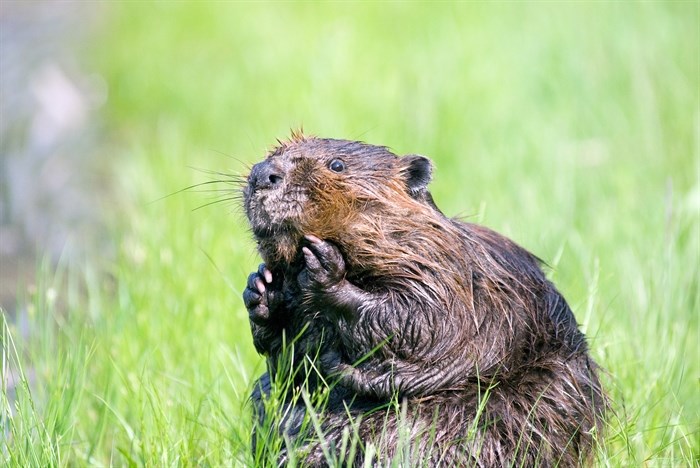
Image Credit: PIXABY
November 05, 2023 - 12:00 PM
Nearly all the Okanagan’s wetlands have been lost to development and urbanization, leading to a devastating loss of habitat for multiple species but one familiar Canadian critter could be the key to restoration.
Close to 95% of the Okanagan’s wetlands no longer exist and those trying to repair the damage say it's not easy, says Neil Fletcher, Director of Conservation Stewardship with the BC Wildlife Federation.
“You can restore wetlands,” Fletcher said. “In Vernon, we're looking at restoring a wetland by Swan Lake. It's a big project.”
While they can be recreated, conservation practices have not yet perfected artificial wetlands. The best thing to do is restore the ones that still exist, Fletcher said. And, surprisingly, beavers may be the best helpers for the job.
On its website, the wildlife federation says “beaver dams are a marvel of nature, creating natural wetlands that are home to myriad species in addition to the furry families that build them. Dams create riparian zones, saturate soils, and store water for slow release, helping to regulate flow and temperature.”
For this reason, beavers make handy conservation workers and are being utilized by the federation to restore wetlands in the Okanagan.
“In the next three years, we're planning on building 100 beaver dam analogues, which are like starter kits for beavers, to get them to get back on the landscape where we're finding lower population numbers,” Fletcher said.
The Federation will be working on sites in Merritt, the Lower Nicola region and the outskirts Penticton to restore damaged wetlands.
These endangered landscapes provide crucial habitat for countless species and play an important role for migratory birds.
“Some animals don't stay local, but they move south (for the winter). And as they're moving south, they need these gas stations to stop at and refuel, which are wetlands,” Fletcher said.
“There's, for instance, the blue-winged teal… it travels all the way to South America every year, and it needs wetlands all the way along for its journey,” he said.
A big problem for these birds and other species in the Okanagan is that communities like Penticton, Vernon and Kelowna are built on floodplain areas.
“They used to be wetlands,” Fletcher said. “Eventually, as the populations got larger… a lot of those wetted areas ended up getting filled to create space for schools and hospitals.”
“It generally starts with agriculture,” he said. “They would clear the land, they'd drain it. And then eventually, urbanization would follow, and the rest of those wetlands would either be filled in or further drained or put into pipes and put into sewer lines.”
Close to 10,000 wetlands remain in the greater Okanagan region, Fletcher explained. However, these wetlands vary massively, from 0.01 of a hectare to many hectares in size.
“Across Canada, a third of species at risk rely on wetlands for part of their life and when you're losing up to 95%, it can be a pretty big issue,” Fletcher said. “Relative to forest loss, wetlands are lost at three times the rate… part of that's because they tend to be in the lower valley bottoms where we as humans like to live.”
However, Fletcher said he remains hopeful for the future of British Columbia’s wetlands.
“There's (been) a lot of degradation over hundreds of years… so we have a lot of work ahead of us,” he said. “It can be expensive to do restoration, but it is possible. And I think that's what gives people hope, is that if you can bring back the water, and if you can create the right ingredients, a good healthy plant community, a lot of the time you're able to attract wildlife back to that pretty quickly.”
A previous project in Meadow Creek in the Kootenays saw Tundra Swans return within just a few weeks of the project’s completion.
“We had Tundra Swans fly in on their migration route and stop over at these newly created wetlands,” he said. “And that was just such a wonderful experience. I think both for the landowner and for our team as well.”
The federation also runs wetland education programs to help the public learn more about these endangered habitats. More information about the program can be found on their website here.
More information about the BC Wildlife Foundation can also be found here.
To contact a reporter for this story, email Georgina Whitehouse or call 250-864-7494 or email the editor. You can also submit photos, videos or news tips to the newsroom and be entered to win a monthly prize draw.
We welcome your comments and opinions on our stories but play nice. We won't censor or delete comments unless they contain off-topic statements or links, unnecessary vulgarity, false facts, spam or obviously fake profiles. If you have any concerns about what you see in comments, email the editor in the link above. SUBSCRIBE to our awesome newsletter here.
News from © iNFOnews, 2023